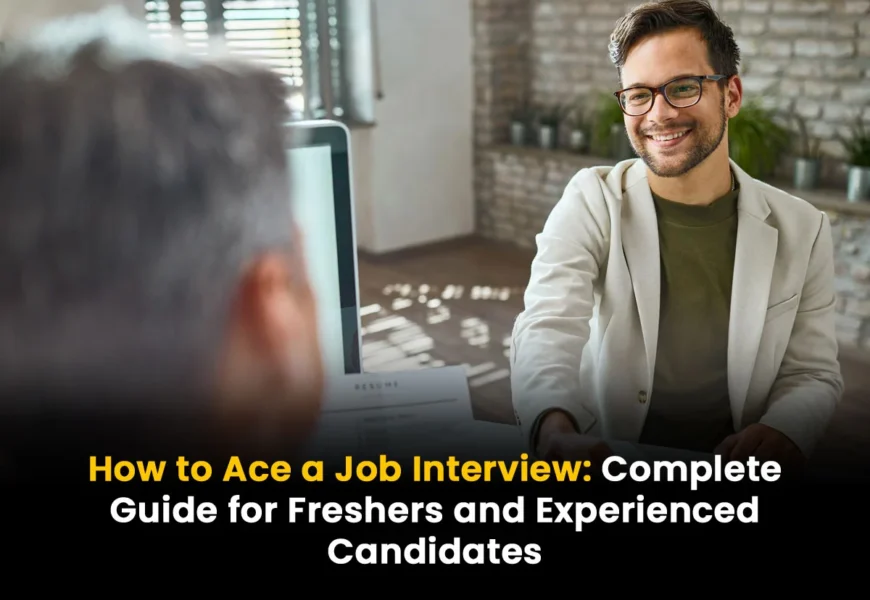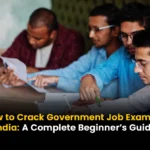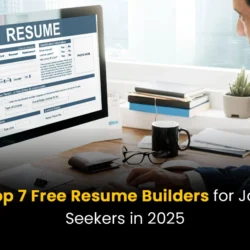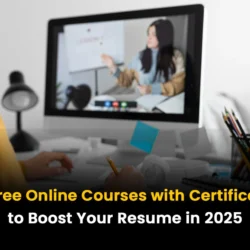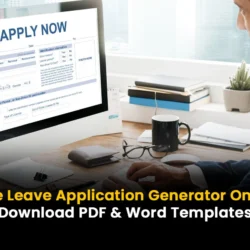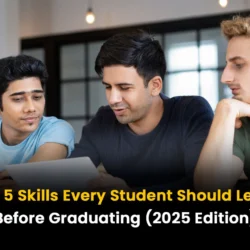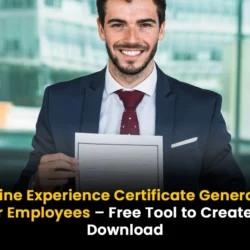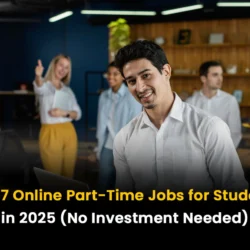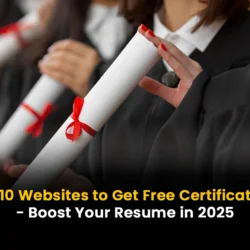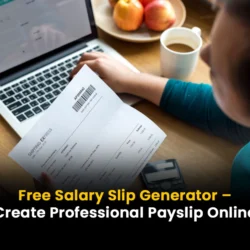Do you also find giving a job interview a bit scary, especially if it is your first interview? But if you prepare well and stay confident, you can turn that fear into an opportunity. In this blog, we will guide you about every important part of the job interview, from preparation tips to common interview questions, and also tell you what you should do after the interview, all in easy language.
Whether you are a fresher, a student or an experienced professional, this blog will be a complete guide for you, which will help you in cracking interviews and getting your dream job.
Why Job Interviews Matter
An interview is not just a process of answering the questions asked; it is a two-way conversation in which the employer judges your personality, skills and attitude. Along with this, you also get a chance to understand the company, its culture and job role.
In short, interviews are your final chance to make a lasting impression.
Types of Job Interviews
Understanding the type of interview helps you prepare better:
- Face-to-Face Interview: The most common and traditional type.
- Phone Interview: Often used as the first round to shortlist candidates.
- Video Interview: Popular in remote and tech jobs.
- Panel Interview: Involves multiple interviewers asking questions.
- Group Discussion (GD): Tests your communication, confidence, and logic.
- HR Interview: Focuses on your attitude, values, and long-term plans.
- Technical Interview: Specific to your skills, programming, tools, etc.
Before the Interview: How to Prepare
Proper preparation is 70% of success. Here’s how to prepare like a pro:
1. Know the Company
- Visit their official website
- Read about their mission, values, and recent news.
- Understand the job role and responsibilities.
2. Know Your Resume
- Be ready to explain every line on your resume.
- Be honest and never bluff skills you don’t have
3. Practice Common Questions
Here are some examples:
- “Tell me about yourself”
- “Why should we hire you?”
- “What are your strengths and weaknesses?”
- “Where do you see yourself in 5 years?”
- “Tell me about a time you solved a problem”
Pro Tip: Don’t memorise answers. Practice in your own words with examples.
4. Plan Your Outfit
Dress neatly and according to the company type:
- Formal (shirt, trousers, blazer) for corporate
- Business casual for startups
During the Interview: What to Do
Greet with Confidence
Say: “Good morning, sir/ma’am. Thank you for giving me this opportunity.”
Maintain Eye Contact
It shows confidence. Don’t stare, just stay natural.
Body Language
Sit straight, don’t cross your arms, and avoid shaking your legs.
Be Honest
If you don’t know something, politely say:
“I’m not sure, but I’d love to learn more about it.”
Ask Questions
At the end, ask:
- “What would my daily responsibilities be?”
- “How does the team handle challenges?”
It shows curiosity and interest.
Most Asked Interview Questions & How to Answer
Here are detailed tips on common questions:
1. “Tell me about yourself.”
🟢 Talk about your education, experience, interests, and values
🚫 Don’t talk about personal life or long stories
2. “Why do you want to work here?”
🟢 Show you’ve researched the company
🟢 Link your goals with their mission
3. “What are your strengths?”
🟢 Choose 2–3 relevant skills
Example: “I’m a fast learner, good at teamwork, and I stay calm under pressure.”
4. “What are your weaknesses?”
🟢 Mention a real weakness with improvement effort
Example: “I used to hesitate in public speaking, but I’ve been taking online communication classes.”
5. “Where do you see yourself in 5 years?”
🟢 Show ambition, but stay realistic
🟢 Align with the company’s growth
Bonus Tips for Freshers
- Don’t worry if you don’t have experience
- Focus on your internships, projects, or college achievements.
- Show eagerness to learn and grow.
- Mention skills such as Microsoft Office, communication, and teamwork
Example answer:
“Though I’m new to the industry, I’m quick to learn and passionate about [industry name]. I’m looking forward to gaining experience and contributing to your team.”
Virtual Job Interview Etiquette (Zoom, Meet, Skype)
- Test your microphone, camera, and internet 10 minutes before
- Sit in a quiet, well-lit room.
- Use headphones to avoid echo.
- Look into the camera while speaking.
- Don’t interrupt, wait for the interviewer to finish
Post-Interview: What To Do
Say Thank You
Send a short email within 24 hours:
“Thank you for your time today. It was great learning about the opportunity. I look forward to hearing from you.”
Follow Up
If no response after 5–7 days, send a polite follow-up email.
Common Mistakes to Avoid
| ❌ Mistake | ✅ Correction |
| Arriving late | Be there 10–15 minutes early |
| Giving long or vague answers | Be brief and clear |
| Talking badly about past employer | Stay neutral or positive |
| Not preparing questions | Ask about role or company vision |
| Not doing company research | Always read about the company |
Final Checklist Before Interview
- Resume printed or updated in an email
- Portfolio (if needed)
- Identity proof (for walk-ins)
- Notebook and pen
- Put your mobile on silent mode
Conclusion
A job interview is not just about answering the questions correctly, but it is also a process of your preparation, mindset and showing genuine interest. In any job interview, you should answer with utmost honesty, remain confident and follow the above tips.
One thing you should always remember is that if you don’t perform well in an interview, it’s still an opportunity to learn. Keep improving yourself, and one day you will definitely get the right opportunity!

